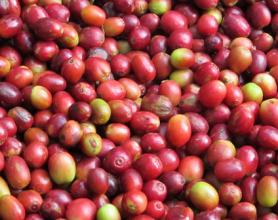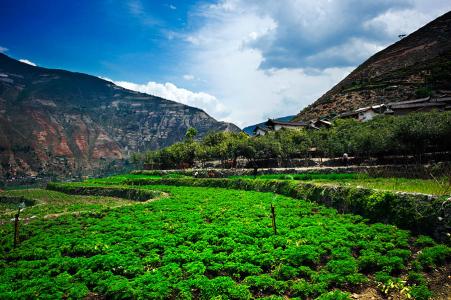Coffee is the history of entering China.-when will coffee enter China?
Introduced into the Arab world:
In 525 AD, Ethiopian troops invaded Yemen, and coffee beans were taken to Yemen by soldiers. According to records, coffee trees began to be planted in Yemen in 575 AD. Later, coffee beans were also brought to Egypt by Sudanese black slaves who were shipped to Egypt. After coffee was introduced into the Arab world, it was originally used by Arabs as a herb to treat migraines and promote digestion. Later, the Arabs invented roasting coffee beans to make a coffee drink, which conquered the Arab taste with its unique aroma and rich flavor, and the habit of banning alcohol in Islam played a role in the spread of coffee at that time. Coffee is called "the drink given by Allah" by Arabs. It is recorded that cafes appeared in Damascus, Mecca and other places in the 15th century. After the Ottoman Turkish Empire conquered the Arab world, it developed coffee into a "national drink" and developed coffee etiquette and mysterious coffee divination. Before the 16th century, coffee was regarded as a very precious drink in the Arab world, and Arabs, especially Yemen, which grew coffee, also monopolized coffee production and strictly prohibited the outflow of coffee seeds and saplings.
Introduced into Europe:
The Ottoman Turkish Empire in the 16th century was the center of East-West trade. Coffee, a mysterious drink, naturally attracted the attention of East and West businessmen, who not only developed their own habit of drinking coffee, but also wanted to bring this precious drink back to their country. As early as the end of the 16th century, merchants in Venice, Marseilles and London began to secretly bring a small amount of coffee beans home to receive friends with coffee at home.
In 1616, Venice merchants officially imported a bag of coffee beans to Italy for the first time. Europeans covet the seeds and saplings of coffee. In 1615, the Dutch smuggled a coffee sapling out of the port of Mocha, transported to the Netherlands and planted in a greenhouse. Coffee, a "fashionable" and "mysterious" drink from the "Eastern Ottoman Empire", was quickly accepted by Europeans, and a number of cafes came into being. In the coffee shop, people can get together to talk about current affairs, politics and various topics while drinking coffee. In addition, the coffee shop has also become a gathering place for some literati and artists. Coffee has quickly spread in Europe and penetrated into people's lives.
Coffee saplings shipped by the Dutch to the Netherlands in 1616 could not be planted on a large scale because they could not adapt to the cold climate in the north, so the Dutch transplanted them to Ceylon in 1696 and to Jakarta, Indonesia, in 1699. Indonesia became the first country in Asia to produce coffee on a large scale.
As the birthplace of Islam, Mecca, Medina and Jerusalem, as holy cities of Islam, have also attracted a large number of Eastern Muslims to make pilgrimages. These pilgrims also have the opportunity to taste coffee in Arabia and repeatedly try to take it out of the Arab world. As early as the 17th century, during a pilgrimage to Mecca, Babudan, an Indian Muslim, secretly took seven coffee beans out of Yemen and transported them to southern India, where coffee was introduced into India.

Important Notice :
前街咖啡 FrontStreet Coffee has moved to new addredd:
FrontStreet Coffee Address: 315,Donghua East Road,GuangZhou
Tel:020 38364473
- Prev

How do you make macchiato coffee?
Add 3 tablespoons of foam to a small cup of Italian coffee to finish a cup of macchiato. Heat the fresh milk to 65 degrees Celsius, pour the right amount of hot milk into the "Hario milk bubble pot" and beat the right amount of "DaVinci French vanilla syrup", about 0.5oz (15cc). Sweet lovers can use 1 ounce (30cc) to add the syrup to the espresso and pour the hot milk into the mug
- Next

Where do you produce coffee in China? where do you make coffee? how to make coffee?
Where does China produce coffee and how to brew coffee? China's coffee is mainly produced in Yunnan and Hainan. It is grown in Guangdong and Guangxi, but on a large scale.
Related
- What brand of black coffee is the most authentic and delicious? what are the characteristics of the flavor of the authentic Rose Summer Black Coffee?
- Introduction to the principle and characteristics of the correct use of mocha pot A detailed course of mocha pot brewing coffee is described in five steps.
- Which is better, decaf or regular coffee? how is decaf made?
- How much is a bag of four cat coffee?
- How about four Cat Coffee or Nestle Coffee? why is it a cheap scam?
- Which is better, Yunnan four Cats Coffee or Nestle Coffee? How about cat coffee? is it a fake scam? why is it so cheap?
- How about Cat Coffee? what grade is a hoax? which instant coffee tastes better, four Cat Coffee, Nestle Coffee or G7 coffee?
- Process flow chart of coffee making-Starbucks coffee making process what coffee tastes good at Starbucks
- The top ten best coffee beans in the world Rose summer coffee or Tanzanian coffee tastes good
- Yunnan four cat coffee is good to drink?_four cat coffee is a big brand? four cat blue mountain coffee is fake?

